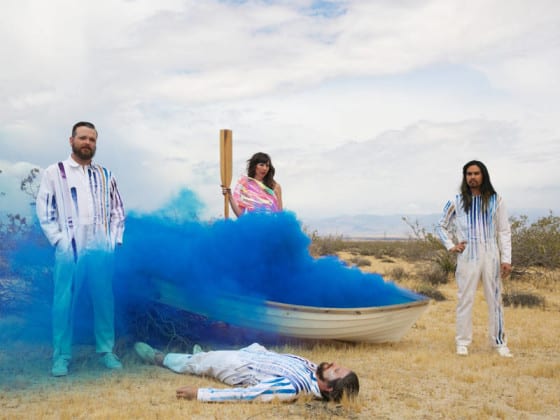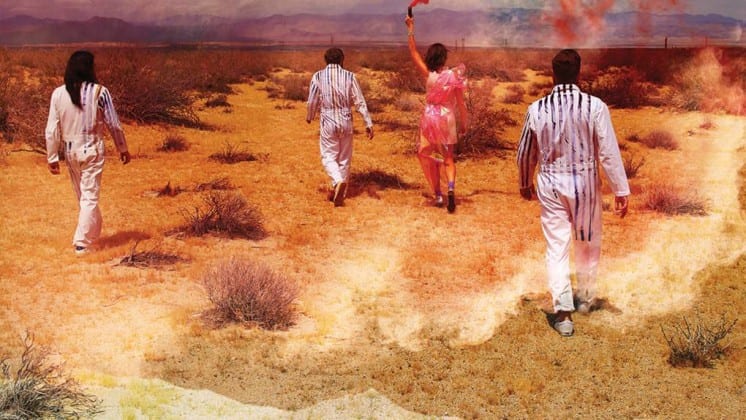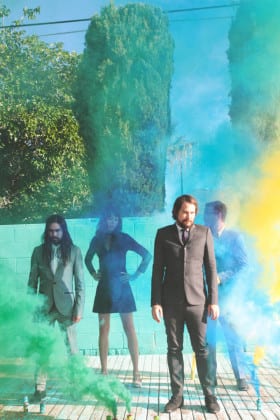Album review: With “Better Nature,” Silversun Pickups still aren’t Smashing Pumpkins
It’s difficult to find a Silversun Pickups review that doesn’t mention Billy Corgan. You sure as heck won’t find one here.

Let’s see. Two white guys: check. Female bassist: check. An Asian dude with long hair (ok, Chris Guanlao is Filipino): check. Hey, whaddya know? It’s Smashing Pumpkins!
Sure, Brian Aubert’s voice is similarly androgynous to Corgan’s in its lighter moments. The Pickups frequently employ the same downtuned, uber-legato wall-of-guitar sound. They’re like the Pumpkins in that they stack a pile of guitar overdubs high enough to satisfy Dagwood. Overall, the Silversun sound is consistently closest to a post-Siamese Dream, pre-Adore Pumpkins, way more so than My Bloody Valentine, the other band that is most frequently compared to the Pumpkins.
But Aubert tends to constantly filter his vocals, whereas Corgan seldom did so, content to leave his awkward voice—alternating from a breathy falsetto, a strained croak, and a bitter scream—largely raw and untreated. And Aubert’s voice is by far better suited for singing. And sometimes he smiles. Billy Corgan hasn’t smiled for decades. Their production is so tight and clean that they at times resemble a less minimalistic, male-fronted Stereolab or an American Mew.
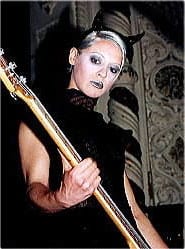
Pumpkins bassist D’arcy Wretzky always seemed to be in the background, sticking to a “just the root, please” bass line. Corgan redid all of her parts on “Siamese Dream.” The liner for “Pisces Iscariot” featured her nipples. That and singing half a verse on “Farewell and Goodnight” was probably the most self-expression she got away with during her Pumpkins career.
While Aubert might have an effeminate voice, he lacks Corgan’s range and grit. And while he’s no slouch of a guitarist, Corgan would simply melt his face in a shred-off.
In addition, Jimmy Chamberlain’s drumming is simply inimitable and instantly recognizable. While he is a jazz drummer at heart, he also studied with bombast virtuoso Charlie Adams. Ever heard a Charlie Adams drum solo? It’s a blinding barrage of notes, a veritable machine-gunning, a nonstop single-stroke roll orchestrated throughout the drum kit for minutes on end. More of a chop monster than an articulate and thoughtful improviser, Charlie Adams is today’s Buddy Rich. Listen to any Pumpkins album and you will hear those same blazing single-stroke rolls throughout. Neither Elvira Gonzalez nor Guanlao ever demonstrated that kind of dexterity, nor have they hinted that they even possess it. And no rock drummer in pop music history has embraced the ride cymbal the way Chamberlain did.

So it’s hard to make a case for Silversun Pickups being Pumpkins imitators so much as would-be torchbearers for the post-Hendrix school of alternative rock.
Otherwise, while they’ve evolved slowly over the past decade and a half, it’s been a gradual move towards more synthesizers—that’s the big shift. They’ve been wise to err on the side of caution, releasing four rock-solid EPs rather than overwriting and over-recording. As a result, their discography is concise and solid. But their range of expression, be it what it is, is far more narrow than either Corgan’s or the Pumpkins’.
That said, one critic claimed that “Better Nature” is “safe” but “divisive.” Trace the Pumpkins from “Gish” to “Adore.” Over the course of those seven years and four albums, the band constantly forged new territory, starting as post-psychedelic alternative rock, moving to the lushness of “Siamese Dream” with some help from Butch Vig, pulling the alternative rock genre to its pinnacle with “Mellon Collie and the Infinite Sadness,” and—after the death of a touring keyboardist and the temporary firing of Jimmy Chamberlain for irresponsible behavior—exploding into the uncertain supernova of “Adore.”
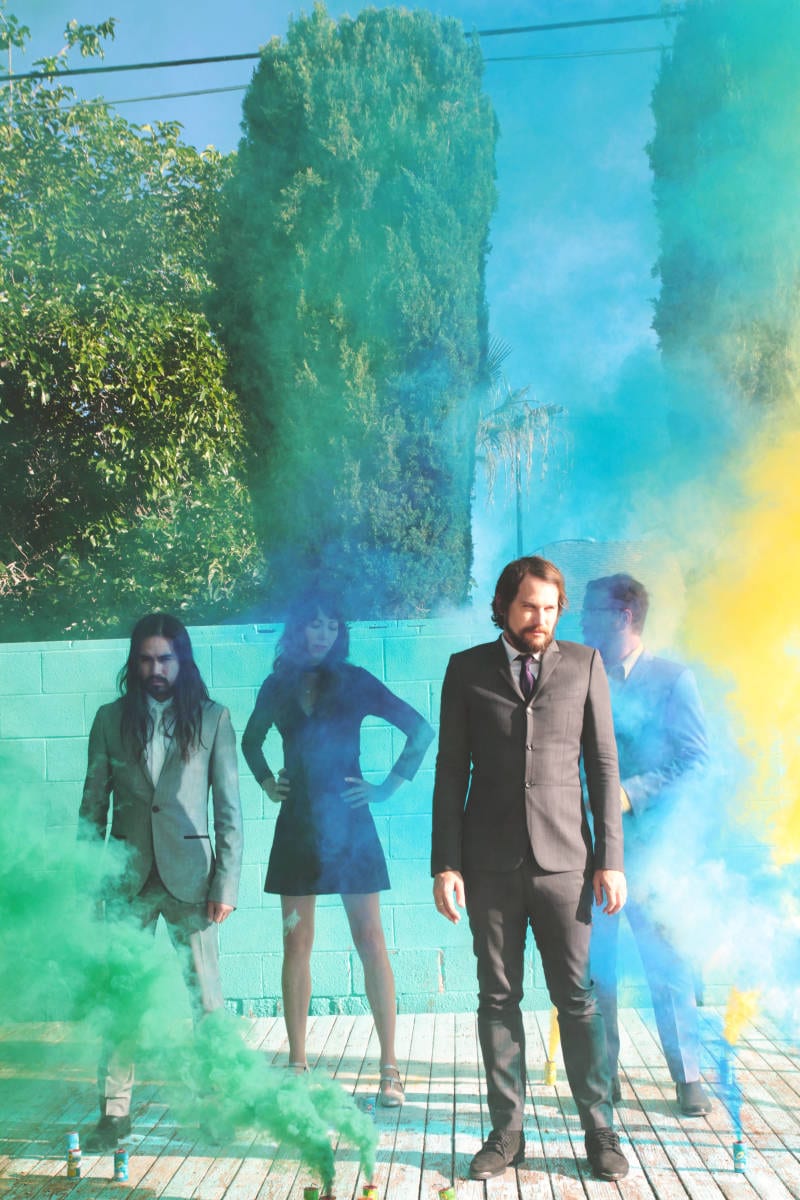
The Silversun Pickups kicked off with “Carnavas” and placed in Billboard’s Top Ten right off the bat. “Swoon” and “Neck of the Woods” followed, but it’s hard to make a case for much real development (although it is certain that overzealous fans will angrily disagree). With “Better Nature,” there are more synthesizers. What more can be said? It’s big, it’s dark, it’s lush. Maybe it’s bigger, darker, and lusher.
But safer? The quartet was never experimental to any extent; aesthetically, they’ve been quite consistent. These are new songs recorded with a slightly less guitar-heavy instrumentation, but there’s nothing particularly safe about “Better Nature,” as there was nothing particularly dangerous about its predecessors.
And divisive? Well, if they’re like the Pumpkins, then sure, their fourth album is “more electronic,” just like “Adore” was, but it’s not like they switched gears the way Bob Dylan, Dixie Chicks, or Mumford and Sons did. Now that was divisive.
Frankly, there’s not a lot to say about “Better Nature” other than that it’s slightly different and it’s fantastic. Everything they’ve done has been incredibly accessible. They’re a band’s band. Like Japanese automakers, they’re not much when it comes to invention, but they’ve got imitation down to a tee. Will it gather new fans? Undoubtedly. But they are merely tweaking their award-winning recipe, not moving to a new kitchen.


